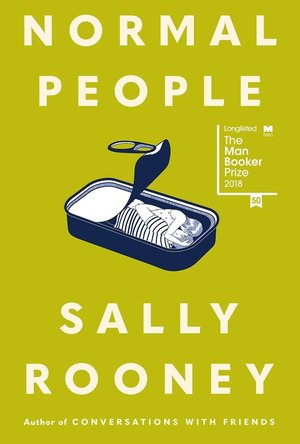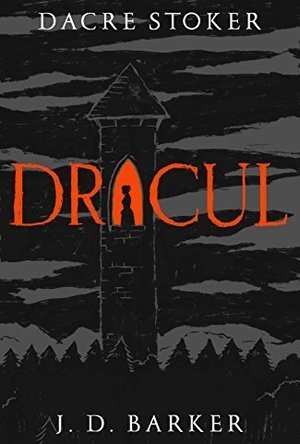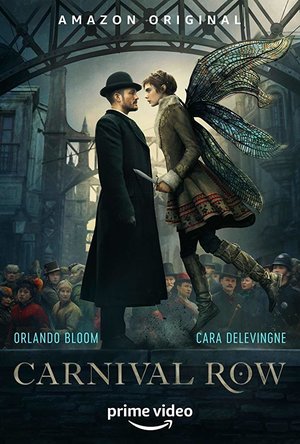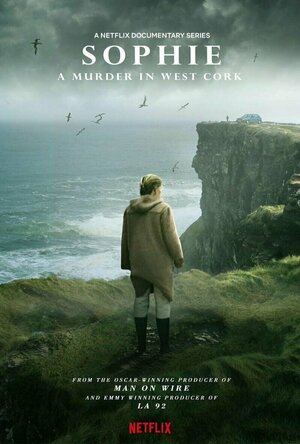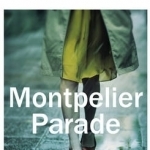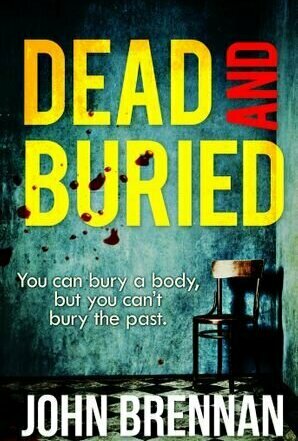Search
Search results
Sarah (7800 KP) rated Normal People in Books
Jan 9, 2019 (Updated Jan 9, 2019)
An adorable yet frustrating love story
I always enjoy reading books that are based around the most banal and ordinary of plots, yet are still hugely entertaining and enthralling. I think it takes a great author to make a plot like this rise above just average and readable, to something you can’t put down. And Sally Rooney really succeeds with this book.
It’s just a normal romance between two teenagers in Ireland, whose stories and family lives aren’t anything exceptional and are no doubt similar to many others, yet Sally Rooney has turned this into an adorable and un-putdownable read. There’s something so sweet and yet bleak and dark about this story that I really struggled to put it down. The central characters of Connell and Marianne are well developed yet flawed, and I’m sure many people could relate to them. I really enjoyed the twists and turns and changes in their relationship as the story progressed. The book itself is for the most part well written. It has a good structure and I liked how each chapter skips ahead a few months. My only issue with the writing is that I dislike how the dialogue hasn’t been separated out from the rest of the narrative. Since when is it acceptable to not separate dialogue and conversation between characters using speech marks etc? It made reading some of the conversation a little difficult at times. I’m not sure why books that tend to win awards and accolades do so by having questionable punctuation and prose... I’m also not too sure about the ending. It was unsatisfying and felt like the characters were never going to change or advance. But despite this, I really did think this was a great book.
It’s just a normal romance between two teenagers in Ireland, whose stories and family lives aren’t anything exceptional and are no doubt similar to many others, yet Sally Rooney has turned this into an adorable and un-putdownable read. There’s something so sweet and yet bleak and dark about this story that I really struggled to put it down. The central characters of Connell and Marianne are well developed yet flawed, and I’m sure many people could relate to them. I really enjoyed the twists and turns and changes in their relationship as the story progressed. The book itself is for the most part well written. It has a good structure and I liked how each chapter skips ahead a few months. My only issue with the writing is that I dislike how the dialogue hasn’t been separated out from the rest of the narrative. Since when is it acceptable to not separate dialogue and conversation between characters using speech marks etc? It made reading some of the conversation a little difficult at times. I’m not sure why books that tend to win awards and accolades do so by having questionable punctuation and prose... I’m also not too sure about the ending. It was unsatisfying and felt like the characters were never going to change or advance. But despite this, I really did think this was a great book.
The start of Bram Stokers biography?
And to think that I nearly gave up on this to begin with! At about 20% in, it just didn't seem to be drawing me in at all. So how pleased am I that I persevered?!!
This is a prequel to Bram Stokers Dracula, and is the story of Bram himself. It postulates that Dracula and vampires really do exist, Bram and his family had an intimate relationship with one (not like THAT!), and Dracula was written as a warning about the Undead. Well, I clearly don't know what to believe now!
The language used in this novel is a little more up to date than Bram Stokers original: it's written for the modern reader (as Bram's was at the time, I suppose), and is consequently much easier to read. This book is supposedly based on notes that Bram left behind - whether they were ideas for another book, or they were 'actual occurrences', we'll never really know.
Bram and his family are followed from Bram's early childhood, up until well after their encounter with Dracul. It's exciting, there's loads of action, and I had some serious worries about Bram's siblings! There's loads of historical detail (potato famine in Ireland, disease, poverty) which I rather enjoyed. But it's the encounters with the vampires that I really loved. There's always going to be someone that makes the comparison to 'that' vampire series, and so I'll be the one. There IS NO comparison. These aren't nicey-nicey vampires who sparkle. These are largely speaking, evil, dark-magic-using, killing machines. Much more fun.
I think this is probably going to be a series. Which I will obviously be reading. Obviously.
Many thanks to NetGalley and the publisher for my copy of this book.
This is a prequel to Bram Stokers Dracula, and is the story of Bram himself. It postulates that Dracula and vampires really do exist, Bram and his family had an intimate relationship with one (not like THAT!), and Dracula was written as a warning about the Undead. Well, I clearly don't know what to believe now!
The language used in this novel is a little more up to date than Bram Stokers original: it's written for the modern reader (as Bram's was at the time, I suppose), and is consequently much easier to read. This book is supposedly based on notes that Bram left behind - whether they were ideas for another book, or they were 'actual occurrences', we'll never really know.
Bram and his family are followed from Bram's early childhood, up until well after their encounter with Dracul. It's exciting, there's loads of action, and I had some serious worries about Bram's siblings! There's loads of historical detail (potato famine in Ireland, disease, poverty) which I rather enjoyed. But it's the encounters with the vampires that I really loved. There's always going to be someone that makes the comparison to 'that' vampire series, and so I'll be the one. There IS NO comparison. These aren't nicey-nicey vampires who sparkle. These are largely speaking, evil, dark-magic-using, killing machines. Much more fun.
I think this is probably going to be a series. Which I will obviously be reading. Obviously.
Many thanks to NetGalley and the publisher for my copy of this book.
Deborah (162 KP) rated The Wife Trap (The Trap Trilogy, #2) in Books
Dec 21, 2018
Oh dear. Not the greatest example of the genre I have ever read it has to be said. The Wife Trap is the middle book of a trilogy by this author; the first books seems to have dealt with the courtship of the twin sister of the 'heroine' of this novel, seemingly involving deception and machinations. You could read this book without having read the first one, but of course you don't know exactly what has gone on beforehand and why exactly Jeanette has been banished to stay with cousins in Ireland.
The hero of this book was called Darragh O'Brien. My problem with that was that I got an image of Darra O'Brien (chap who presents Mock The Week etc.) in my head, and I'm guessing that wasn't quite what the author had in mind! Obviously the character wasn't strongly enough written to dislodge said, disconcerting, image!
That though is a minor quibble when compared to my big issue with this book; the so-called heroine. Jeanette is shallow, vain, silly, selfish, self-centred, childish and utterly unlikeable! I can't for the life of me understand what the hero sees in her, except that she is apparently beautiful and quite good at painting... She seems to think she 'deserves' anything she happens to fancy and is willing to stamp her foot and pout until she gets her way. She thinks it quite reasonable to disrupt everyone else so she can have a lie-in (after refusing to abandon her 'town hours' and go to bed earlier!) If it were me, I would have left her stuck in the carriage in the mud in the first chapter and rescued the servants from her!
The hero of this book was called Darragh O'Brien. My problem with that was that I got an image of Darra O'Brien (chap who presents Mock The Week etc.) in my head, and I'm guessing that wasn't quite what the author had in mind! Obviously the character wasn't strongly enough written to dislodge said, disconcerting, image!
That though is a minor quibble when compared to my big issue with this book; the so-called heroine. Jeanette is shallow, vain, silly, selfish, self-centred, childish and utterly unlikeable! I can't for the life of me understand what the hero sees in her, except that she is apparently beautiful and quite good at painting... She seems to think she 'deserves' anything she happens to fancy and is willing to stamp her foot and pout until she gets her way. She thinks it quite reasonable to disrupt everyone else so she can have a lie-in (after refusing to abandon her 'town hours' and go to bed earlier!) If it were me, I would have left her stuck in the carriage in the mud in the first chapter and rescued the servants from her!
Mark @ Carstairs Considers (2357 KP) rated The Wolves of Christmas in Books
Dec 18, 2019
This Christmas Will Not Be Completely Festive
Phoenix Homicide Cops Joe, Tom, and Gretchen’s boss, Jerry, has announced that his retirement has been put on hold since someone has stolen his retirement investment. The fraud division of the police department is going to look into it, but Joe and Tom have just been given a case that may tie in. A dead body was found in Salt River Canyon, but since the victim lived in Phoenix, the case has been transferred to these two. The connection? He worked for the investment firm where Jerry had his money. Could the two tie together?
The book starts out well, but it gets a bit unfocused as it goes along with too many sub-plots. This is especially true when we learn that Tom’s cousin, and Joe’s infatuation, has been brutally raped and left for dead. The two fly over to Ireland to be by her side and help solve the crime, but we also get updates on what is happening in Phoenix thanks to scenes with Gretchen. I did enjoy the main mystery, and I found myself caught up in it, but I wish the book had been a little more focused. This is definitely more serious than the cozies I normally read, but we don’t get too many needless details. Since this is book eight in the series, I really do love the characters, and it was great to spend Christmas with them. In fact, the book stretches from mid-December into the New Year, so we get some nice holiday scenes. The early books in the series were written in the mid-90’s, and the author has kept that time period for the books, as this one makes very clear. All told, I was left smiling when I finished the book.
The book starts out well, but it gets a bit unfocused as it goes along with too many sub-plots. This is especially true when we learn that Tom’s cousin, and Joe’s infatuation, has been brutally raped and left for dead. The two fly over to Ireland to be by her side and help solve the crime, but we also get updates on what is happening in Phoenix thanks to scenes with Gretchen. I did enjoy the main mystery, and I found myself caught up in it, but I wish the book had been a little more focused. This is definitely more serious than the cozies I normally read, but we don’t get too many needless details. Since this is book eight in the series, I really do love the characters, and it was great to spend Christmas with them. In fact, the book stretches from mid-December into the New Year, so we get some nice holiday scenes. The early books in the series were written in the mid-90’s, and the author has kept that time period for the books, as this one makes very clear. All told, I was left smiling when I finished the book.
Erika (17789 KP) rated Carnival Row - Season 1 in TV
Sep 8, 2019
I have mixed feelings about this one. I know that this show did well with the critics because it's apparently reflective of our modern times (xenophobia, etc), and, I'm sure that's probably what the writers intended. However, this show seemed to actually reflect the always interesting and complicated relationship between Ireland and England. The fae even had Irish accents (albeit, bad ones in some cases). It made me think, since both of my families are descendants of two races that weren't necessarily welcome in the US, and I get random sneering/weird comments about being half-Polish.
Anyway, the world was interesting, and it was a Steampunky-Victorian mash up. It was also very predictable, I had everything figured out completely by the 6th episode. The script wasn't that great, and good god, Cara Delevigne cannot act her way out of a wet paperbag. The main draw, for me, was Orly. He seemed to be the best actor out of all of them. There was one story line that I'm not sure was strictly necessary, involving the Spurnrose family, and that obnoxious actress that played Catherine Howard in the Tudors. There was also another strange plot line that seemed a little off, because it wasn't introduced with enough detail. There was also unnecessary T&A that I think just slowed down the show in general. I don't like T&A scenes in general, because they're hardily every relevant to the overall story. I just feel like the streaming platforms are trying to be like HBO. This show would have benefited from not having it, because it could have brought in a younger demographic as well as the adults.
I'm glad this was already renewed for a second season, because they left it as a cliffhanger. I wanted more about these different magical races and their country of origin.
Anyway, the world was interesting, and it was a Steampunky-Victorian mash up. It was also very predictable, I had everything figured out completely by the 6th episode. The script wasn't that great, and good god, Cara Delevigne cannot act her way out of a wet paperbag. The main draw, for me, was Orly. He seemed to be the best actor out of all of them. There was one story line that I'm not sure was strictly necessary, involving the Spurnrose family, and that obnoxious actress that played Catherine Howard in the Tudors. There was also another strange plot line that seemed a little off, because it wasn't introduced with enough detail. There was also unnecessary T&A that I think just slowed down the show in general. I don't like T&A scenes in general, because they're hardily every relevant to the overall story. I just feel like the streaming platforms are trying to be like HBO. This show would have benefited from not having it, because it could have brought in a younger demographic as well as the adults.
I'm glad this was already renewed for a second season, because they left it as a cliffhanger. I wanted more about these different magical races and their country of origin.
Erika (17789 KP) rated Sophie: A Murder In West Cork in TV
Jul 31, 2021
Sophie: A Murder in West Cork, is one of Netflix’s newest true crime series offerings. Consisting of three episodes, the series examines the murder case of Sophie Toscan Du Plantier, a French National that was murdered at her rural holiday getaway home in Schull, Ireland in 1996. Du Plantier’s murder was the first in over 100 years in the small town and remains technically unsolved.
The documentary series had a wide variety of talking heads, from Du Planier’s family, friends, locals, various members of the Garda, and surprisingly, the main suspect. Du Planier’s private life seemed complicated, and it was definitely going to be utilized against her throughout the entire thing.
The case was interesting, Du Planier was found in a bramble bush a few days before Christmas. With seemingly no leads, and a haphazard investigation, I didn’t know how they would end up with a suspect. The first episode set everything up, establishing what the town was like by interviewing the locals. There was even a little spookiness brought in. A few days before her death, Du Planier had visited some ruins, and saw a white lady, which was an omen of death. Pretty interesting, and you wouldn’t think it was pertinent, however, Du Planier took it seriously.
If you watch enough true crime documentaries, you know normally what a killer would do, revisit the scene, be overly helpful, etc. It was clear as soon as they introduced the journalist that he was indeed the suspect. However, when the second episode started, the series was taken over by the main suspect, journalist and ‘poet’, Ian Bailey. As one of Du Planier’s family members quipped, he loves to be interviewed.
Somehow, Bailey had all of this insider knowledge, and wrote somewhat salacious articles about Du Planier, painting her as this woman that entertained all sorts of men. He was also very adamant that the murder was French, and probably her partner or another intimate partner. Bailey was somewhat charismatic, but a complete weirdo. It is common for law enforcement to go after the ‘others’ in society, so was he targeted because he was eccentric? Who knows?
It was clear that the Garda in this area had no idea as to what to do. They may have also had a little tunnel vision because the village creep was poking around the crime scene.
I’m all for presenting all sides to a case, but having the suspect take over in a very charismatic way is not the best approach. The Garda in the area, inexperienced in investigating murders, was obviously not equipped to deal with the investigation. It was clear from the beginning that it was the primary reason the case hasn’t been officially prosecuted in Ireland.
Whenever your documentary begins to get overtaken by the number one suspect, rather than the victim, I begin to have issues. It was also interesting that at the end of the series, there was actually a statement that Du Planier had been forgotten throughout the entire event, and while she was present, she wasn’t the center of the story.
Bailey seems to be the most likely culprit, though, the Garda couldn’t have convinced me beyond a reasonable doubt. It was interesting that somehow in France, the evidence was considered solid enough for a conviction.
I did generally enjoy the documentary series, but again, I have an issue with the main suspect overshadowing the victim. Also, I didn’t feel like enough evidence was presented, and the majority of it was slightly repetitive. I’m interested to see if the case is ever resolved. Based upon the series, probably not.
The documentary series had a wide variety of talking heads, from Du Planier’s family, friends, locals, various members of the Garda, and surprisingly, the main suspect. Du Planier’s private life seemed complicated, and it was definitely going to be utilized against her throughout the entire thing.
The case was interesting, Du Planier was found in a bramble bush a few days before Christmas. With seemingly no leads, and a haphazard investigation, I didn’t know how they would end up with a suspect. The first episode set everything up, establishing what the town was like by interviewing the locals. There was even a little spookiness brought in. A few days before her death, Du Planier had visited some ruins, and saw a white lady, which was an omen of death. Pretty interesting, and you wouldn’t think it was pertinent, however, Du Planier took it seriously.
If you watch enough true crime documentaries, you know normally what a killer would do, revisit the scene, be overly helpful, etc. It was clear as soon as they introduced the journalist that he was indeed the suspect. However, when the second episode started, the series was taken over by the main suspect, journalist and ‘poet’, Ian Bailey. As one of Du Planier’s family members quipped, he loves to be interviewed.
Somehow, Bailey had all of this insider knowledge, and wrote somewhat salacious articles about Du Planier, painting her as this woman that entertained all sorts of men. He was also very adamant that the murder was French, and probably her partner or another intimate partner. Bailey was somewhat charismatic, but a complete weirdo. It is common for law enforcement to go after the ‘others’ in society, so was he targeted because he was eccentric? Who knows?
It was clear that the Garda in this area had no idea as to what to do. They may have also had a little tunnel vision because the village creep was poking around the crime scene.
I’m all for presenting all sides to a case, but having the suspect take over in a very charismatic way is not the best approach. The Garda in the area, inexperienced in investigating murders, was obviously not equipped to deal with the investigation. It was clear from the beginning that it was the primary reason the case hasn’t been officially prosecuted in Ireland.
Whenever your documentary begins to get overtaken by the number one suspect, rather than the victim, I begin to have issues. It was also interesting that at the end of the series, there was actually a statement that Du Planier had been forgotten throughout the entire event, and while she was present, she wasn’t the center of the story.
Bailey seems to be the most likely culprit, though, the Garda couldn’t have convinced me beyond a reasonable doubt. It was interesting that somehow in France, the evidence was considered solid enough for a conviction.
I did generally enjoy the documentary series, but again, I have an issue with the main suspect overshadowing the victim. Also, I didn’t feel like enough evidence was presented, and the majority of it was slightly repetitive. I’m interested to see if the case is ever resolved. Based upon the series, probably not.
Hazel (1853 KP) rated Montpelier Parade in Books
May 24, 2017
Sylvia Plath-esque
I received this book for free through Goodreads First Reads.
Set in the not-so-distant-past in Dublin, Ireland lives Sonny, a schoolboy with not much hope of succeeding in life. Living on the poverty line, Sonny has no choice but to work at a butcher’s shop after school, and with his gambling father, a builder, at the weekend. On one such occasion, whilst working on a posh house on Montpelier Parade, Sonny meets the enigmatic Vera, whose beauty leaves him speechless. It only takes another encounter, and Sonny is infatuated with this elusive lady.
Montpelier Parade is a melancholy love story, describing the dangerous relationship between Sonny and Vera. Not only is it wrong for schoolchild and adult to have such an intimate connection, Sonny finds himself powerless to deal with Vera’s depression. Vera’s Sylvia Plath-esque demeanour results in events that go above and beyond what an adolescent boy ought to be dealing with – especially as he has his own problems, too.
Karl Geary has written this novel in the second person, placing the reader directly into Sonny’s position. “You say,” “She turned and looked at you.” – we, as the reader, become Sonny. This makes it easier to imagine the hardships he is facing at school, at home, and with Vera. We imagine ourselves in his position, thus making everything feel so real.
Montpelier Parade is not an easy book to read. Depression and suicide are very delicate topics to deal with. Combine that with underage sexual relationships with an adult, and you have got a particularly uncomfortable journey ahead. Then, to top it all off, the narrative is riddled with foul language.
A comparison with wealth and poverty, life and death, and love, Montpelier Parade will attract many readers. Sadly, the story was a bit too crude for myself to enjoy. That said, I can understand why many will enjoy it, or even relate to it, however be aware, it is quite a serious, dark story.
Set in the not-so-distant-past in Dublin, Ireland lives Sonny, a schoolboy with not much hope of succeeding in life. Living on the poverty line, Sonny has no choice but to work at a butcher’s shop after school, and with his gambling father, a builder, at the weekend. On one such occasion, whilst working on a posh house on Montpelier Parade, Sonny meets the enigmatic Vera, whose beauty leaves him speechless. It only takes another encounter, and Sonny is infatuated with this elusive lady.
Montpelier Parade is a melancholy love story, describing the dangerous relationship between Sonny and Vera. Not only is it wrong for schoolchild and adult to have such an intimate connection, Sonny finds himself powerless to deal with Vera’s depression. Vera’s Sylvia Plath-esque demeanour results in events that go above and beyond what an adolescent boy ought to be dealing with – especially as he has his own problems, too.
Karl Geary has written this novel in the second person, placing the reader directly into Sonny’s position. “You say,” “She turned and looked at you.” – we, as the reader, become Sonny. This makes it easier to imagine the hardships he is facing at school, at home, and with Vera. We imagine ourselves in his position, thus making everything feel so real.
Montpelier Parade is not an easy book to read. Depression and suicide are very delicate topics to deal with. Combine that with underage sexual relationships with an adult, and you have got a particularly uncomfortable journey ahead. Then, to top it all off, the narrative is riddled with foul language.
A comparison with wealth and poverty, life and death, and love, Montpelier Parade will attract many readers. Sadly, the story was a bit too crude for myself to enjoy. That said, I can understand why many will enjoy it, or even relate to it, however be aware, it is quite a serious, dark story.
Hazel (1853 KP) rated Montpelier Parade in Books
Dec 7, 2018
<i>I received this book for free through Goodreads First Reads.</i>
Set in the not-so-distant-past in Dublin, Ireland lives Sonny, a schoolboy with not much hope of succeeding in life. Living on the poverty line, Sonny has no choice but to work at a butcher’s shop after school, and with his gambling father, a builder, at the weekend. On one such occasion, whilst working on a posh house on Montpelier Parade, Sonny meets the enigmatic Vera, whose beauty leaves him speechless. It only takes another encounter, and Sonny is infatuated with this elusive lady.
<i>Montpelier Parade</i> is a melancholy love story, describing the dangerous relationship between Sonny and Vera. Not only is it wrong for schoolchild and adult to have such an intimate connection, Sonny finds himself powerless to deal with Vera’s depression. Vera’s Sylvia Plath-esque demeanor results in events that go above and beyond what an adolescent boy ought to be dealing with – especially as he has his own problems, too.
Karl Geary has written this novel in the second person, placing the reader directly into Sonny’s position. “You say,” “She turned and looked at you.” – we, as the reader, become Sonny. This makes it easier to imagine the hardships he is facing at school, at home, and with Vera. We imagine ourselves in his position, thus making everything feel so real.
<i>Montpelier Parade</i> is not an easy book to read. Depression and suicide are very delicate topics to deal with. Combine that with underage sexual relationships with an adult, and you have got a particularly uncomfortable journey ahead. Then, to top it all off, the narrative is riddled with foul language.
A comparison with wealth and poverty, life and death, and love, <i>Montpelier Parade</i> will attract many readers. Sadly, the story was a bit too crude for myself to enjoy. That said, I can understand why many will enjoy it, or even relate to it, however be aware, it is quite a serious, dark story.
Set in the not-so-distant-past in Dublin, Ireland lives Sonny, a schoolboy with not much hope of succeeding in life. Living on the poverty line, Sonny has no choice but to work at a butcher’s shop after school, and with his gambling father, a builder, at the weekend. On one such occasion, whilst working on a posh house on Montpelier Parade, Sonny meets the enigmatic Vera, whose beauty leaves him speechless. It only takes another encounter, and Sonny is infatuated with this elusive lady.
<i>Montpelier Parade</i> is a melancholy love story, describing the dangerous relationship between Sonny and Vera. Not only is it wrong for schoolchild and adult to have such an intimate connection, Sonny finds himself powerless to deal with Vera’s depression. Vera’s Sylvia Plath-esque demeanor results in events that go above and beyond what an adolescent boy ought to be dealing with – especially as he has his own problems, too.
Karl Geary has written this novel in the second person, placing the reader directly into Sonny’s position. “You say,” “She turned and looked at you.” – we, as the reader, become Sonny. This makes it easier to imagine the hardships he is facing at school, at home, and with Vera. We imagine ourselves in his position, thus making everything feel so real.
<i>Montpelier Parade</i> is not an easy book to read. Depression and suicide are very delicate topics to deal with. Combine that with underage sexual relationships with an adult, and you have got a particularly uncomfortable journey ahead. Then, to top it all off, the narrative is riddled with foul language.
A comparison with wealth and poverty, life and death, and love, <i>Montpelier Parade</i> will attract many readers. Sadly, the story was a bit too crude for myself to enjoy. That said, I can understand why many will enjoy it, or even relate to it, however be aware, it is quite a serious, dark story.
Hazel (2934 KP) rated Dead and Buried in Books
Jan 5, 2020
Pretty Good Thriller
I am ashamed to say that this book has been in my "to be read" pile since it was published in 2015; my New Year's Resolution for 2020 is to read at least 1 book per month from my pile in order to get through the backlog - this is the first of the year so doing pretty well so far!
Anyway, this is a pretty good read and although the subject matter is harrowing at times, I enjoyed it and found it an engaging and riveting read.
The book alternates between the past and the present and follows the story of Conor amongst the backdrop of "The Troubles" in Northern Ireland during the 1990's and the present day; I admit you do have to have your wits about you when reading in order not to get confused as to which time you are in however, I found it quite easy to stay on track and only had to check back a couple of times to double check.
The story is told from Conor's perspective throughout and his character is well developed and believable as are all the main characters in this book. What I particularly liked and which felt authentic, was how the internal battle Conor fought with himself around trying to do the right thing whilst being forced to do wrong in order to protect himself and his family.
This is a dark and gritty story with plenty of action and scenes of peril; the writing is at a good pace and easy to read with the difficulties Conor faces being a Catholic married to a Protestant being dealt with sensitively and, in my opinion, without bias towards either side.
Overall, a pretty good thriller set in a time and place that few books I have read previously have touched upon and I would certainly read further books from this author.
Thank you to Carina UK/HQ Digital and NetGalley for my copy in return for an honest review.
Anyway, this is a pretty good read and although the subject matter is harrowing at times, I enjoyed it and found it an engaging and riveting read.
The book alternates between the past and the present and follows the story of Conor amongst the backdrop of "The Troubles" in Northern Ireland during the 1990's and the present day; I admit you do have to have your wits about you when reading in order not to get confused as to which time you are in however, I found it quite easy to stay on track and only had to check back a couple of times to double check.
The story is told from Conor's perspective throughout and his character is well developed and believable as are all the main characters in this book. What I particularly liked and which felt authentic, was how the internal battle Conor fought with himself around trying to do the right thing whilst being forced to do wrong in order to protect himself and his family.
This is a dark and gritty story with plenty of action and scenes of peril; the writing is at a good pace and easy to read with the difficulties Conor faces being a Catholic married to a Protestant being dealt with sensitively and, in my opinion, without bias towards either side.
Overall, a pretty good thriller set in a time and place that few books I have read previously have touched upon and I would certainly read further books from this author.
Thank you to Carina UK/HQ Digital and NetGalley for my copy in return for an honest review.
